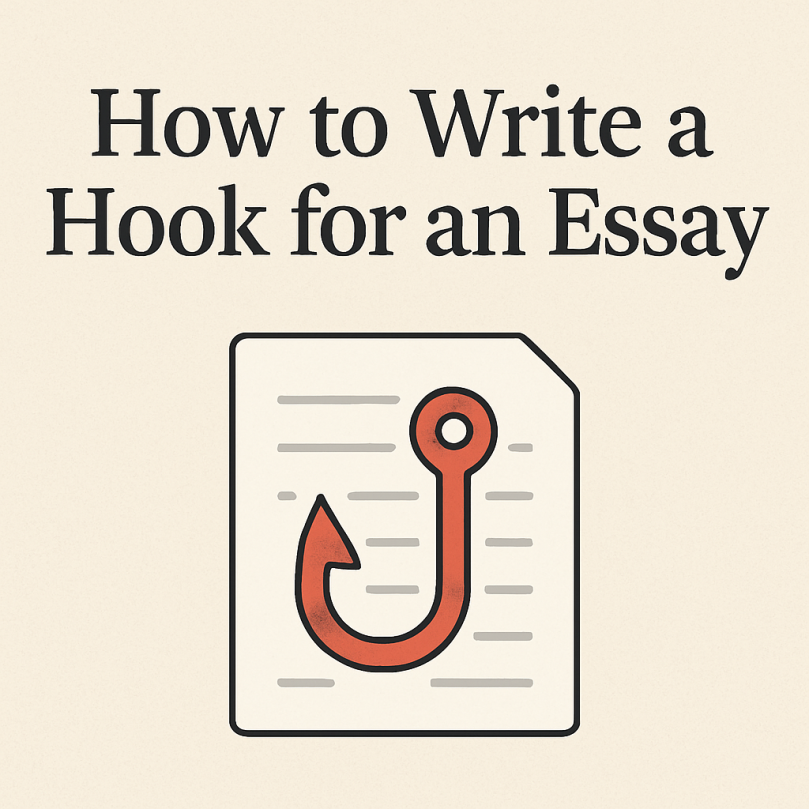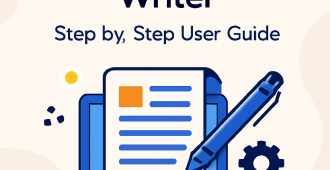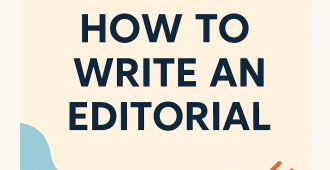Knowing how to write a hook for an essay is the most important and crucial thing to write an engaging content. Remember, a good hook helps to grab the reader’s attention right from the start, developing a desire in them to keep reading.
Furthermore, a good hook also sets the tone for your essay, giving readers a quick yet slight idea of what your topic is about. Without a strong hook, even a well-written essay can lack engagement and remain unnoticed.
So, keep on reading, and in the forthcoming content, we will walk through writing an engaging hook for your essay, along with some provenly effective tips and examples.
Let’s begin.
What Is a Hook in an Essay?

Hook basically refers to the opening statement, which is intended to grab the reader’s attention. The purpose is the same as that of a fishing hook. That is used to catch the fish, whereas an essay’s hook is meant to pull the reader’s attention, as well as setting the tone for the rest of the writing.
When someone starts to read your essay, it only takes a few seconds to decide whether they want to continue reading the content till the end or not. This is why a strong hook is necessary to make the reader understand that the content is not only well-researched but also interestingly written.
A good hook provides a slight hint of the rest of the content to the reader without revealing the actual intent, thus sparking the interest without giving away all the details. There is an extensive range of ways you can use to write a hook. For instance, you can begin with a surprising fact, a bold opinion, share a story, etc.
No matter if you are writing the essay in a conversational tone or narrative form, a good hook is crucial to make your opening powerful and credible. Remember, the hook is something that can make your essay stand out or become literally boring.
Different Types of Hooks to Start Your Essay
There are many ways to write a hook. Choosing the right hook depends on your topic and the tone you want to build within the essay’s content. Some of the following are as follows:
- Factual hook: Begin with a surprising fact by stating it with a study. Example: A study conducted by ABC University indicates that X% of people are likely to lose eyesight because of excess screen time.
- Question hook: Ask a thought-provoking question from the reader and then build interest towards the content. Example: “Do you seek a one-stop destination to learn coding? Look no further because you are at the right place”.
- Anecdotal hook: Tell a short story to grab readers’ Example: “On July 20, 1969, Neil Armstrong landed on the moon as part of the Apollo 11 mission.”
- Statement hook: Use a bold or strong statement that challenges readers. This is useful in argumentative essays. Example: Social media is destroying real human communication.
- Definition hook: Begin by defining the key terms that are central to your essay. These types of hooks are best suited for simple and informative essays where you have to be super concise. Example: Courage means facing fear, even when you feel like running away from it.
What Are Some Good Hooks for Essays?
Now that we have understood different types of hooks and their functionalities, let’s explore what a good hook looks like. Below, we have categorized examples of effective essay hooks for different tones, techniques, and structures:
1. Question Hooks
While discussing a complex topic, adding questions is a classic way to engage readers. This not only enhances curiosity but also allows the readers to practically participate in the discussion. Some of the significant examples of a question hook include:
- Have you ever wondered what the temperature is without the sun?
- Are your kids becoming weaker day by day?
- Can a single vote really make a difference in the national election?
- Do you consume bread every day?
- Have you ever smoked in your life?
When to use: In persuasive essays and in reflective writing.
2. Statistical or Factual Hooks
A shocking statement of facts unknown to people can immediately grab the reader’s attention. Some examples of an effective statistical or factual hook include:
- More than 4 billion people use the internet on a daily basis.
- One in every eight people on earth lives in an underdeveloped area.
- Studies conducted by universities show that people blink less when they are exposed to the screen. The situation can lead to chronic disease and loss of eyesight.
- Do you know that a horse sleeps while standing on its feet?
When to use: These hooks are best for analytical and research-based essays.
3. Anecdotal Hooks
People tend to love stories, and anecdotal hooks help you deliver just that. Examples of an effective anecdotal hook include:
- I still remember the day when I first met my husband in 2000.
- My grandfather used to say: Life is like a garden. Whatever you plant, you will grow it only.
- It was just another Tuesday when I realized I had no idea who I was anymore.
- My trip to the US is a one-of-a-kind experience that I will not be able to forget in my life.
When to use: These types of hooks are perfect for argumentative essays or editorials.

4. Definition Hooks
The most simple type of hooks. These help to give readers an introduction to the central terms, for instance:
- Empathy refers to not only witnessing someone’s pain but also feeling it.
- Minimalism is not only about owning less. Instead, it is about making more out of the lesser resources available.
- Procrastination is an act of delaying tasks repeatedly.
When to use: You can use the definition hooks in expository or informative essays.
5. Quotation Hooks
Quotes are a classic hook device. When chosen well, they add weight to your point and immediately introduce the essay’s theme. Some of its prominent examples include:
- Be the change you wish to see in the world- Mahatma Gandhi.
- Education is not about filling a pail. Instead, it is more about lighting a fire- William Butler.
- Not everything you see can be changed. However, nothing can be changed until you have faced it- James Baldwin.
When to use: Excellent for reflective, analytical, and philosophical essays.
How to Write a Hook for an Argumentative Essay?
Argumentative essays are meant to conduct debate with the readers. Basically, you have to convince readers to think deeply regarding the matter to convince them to agree with your points. This is why your hook must bring up a topic on which people already have differing opinions. It should also lead smoothly into the arguments and or main idea of the content. Here are some of the effective ways to write a hook for an argumentative essay:
Use a Bold or Surprising Statement
A strong opinion or bold claim can make readers curious. They may agree or disagree, but either way—they’ll want to read more.
- Fast food should be banned in all schools.
- Watching a screen for over 4 hours can lead to significant cell damage in kids.
- Technology is making us lazy rather than productive.
Ask a Thought-Provoking Question
Ask questions that make readers think and research more about the topic. This is a great way to introduce a topic with two or more opinions.
- “Should animals be used for scientific research?”
- “Is free college education a basic right?”
- “Do social media platforms help or hurt public discussions?”
Start with a Shocking Fact or Statistic
Facts and statistics are a great and the most powerful way to put your point forward. For instance:
- A study indicates that every 1 out of 3 men over 30 years of age have colored their hair at least once in a lifetime.
- One in five women have faced abuse in their lives.
However, make sure that the facts and figures you are using are coming from credible and reputed sources.
Use a Short Story or Scenario
An effective storytelling can help you create a picture in the reader’s mind to set up a debate.
- “Imagine losing your job because a robot replaced you.”
- “You see a homeless veteran on the street. Should the government do more?”
A good argumentative hook should challenge the reader to take a stance.
How to Write a Hook for an Analytical Essay?
Learning how to write a hook for an essay is the key to mastering essay writing. The skill of coming up with a thoughtful hook is, in particular, essential in analytic essays. These types of essays aim to examine ideas, patterns, or deeper meanings within a subject. Therefore, the representation of the goal and purpose is very important to be reflected by the hook.
A Hook for an Analytical Essay Should:
- Tell something that surprises the reader.
- Display a common idea and then question it.
- Include a meaningful concept that revolves around the real underlying theme.
Example:
Will the hero remain a hero till the end? These types of questions act as a very strong hook, which makes the reader not just curious about the end but read each line with equal attention. It is because it tells the reader that something unexpected might happen.
When you learn how to write a hook for an analytical essay, keep in mind that the goal should be to give a small incomplete hint. Do not summarize the entire content of the essay.
Tips:
- Do not make it excessively long; keep it concise and precise.
- The hook at the start must be about a little fact from the upcoming essay.
- You can add a quote as it helps add meaning to the essay.
Remember that the shell hook sets the tone for an objective and thoughtful essay. All of these help form an essay that sounds worthy of reading right from the first line.
The knowledge of how to write a hook for an essay and capture the reader’s attention is quite a task. Particularly, the writer who has to write content on a daily basis always has to be careful about the hook. The motive is to spark curiosity in the reader’s mind, making them keep themselves engaged with the content.
Here Is What a Good Hook Sounds Like:
- Sparks curiosity.
- Engages with the reader.
- Sounds like a question to make people think.
Here Are What You Can Adopt to Create an Effective Hook:
- A fact about something such as “Did you know strong openings boost essay scores?”
- A challenge: “Can you read a book in one day?”
- Something that relates to people’s everyday life.
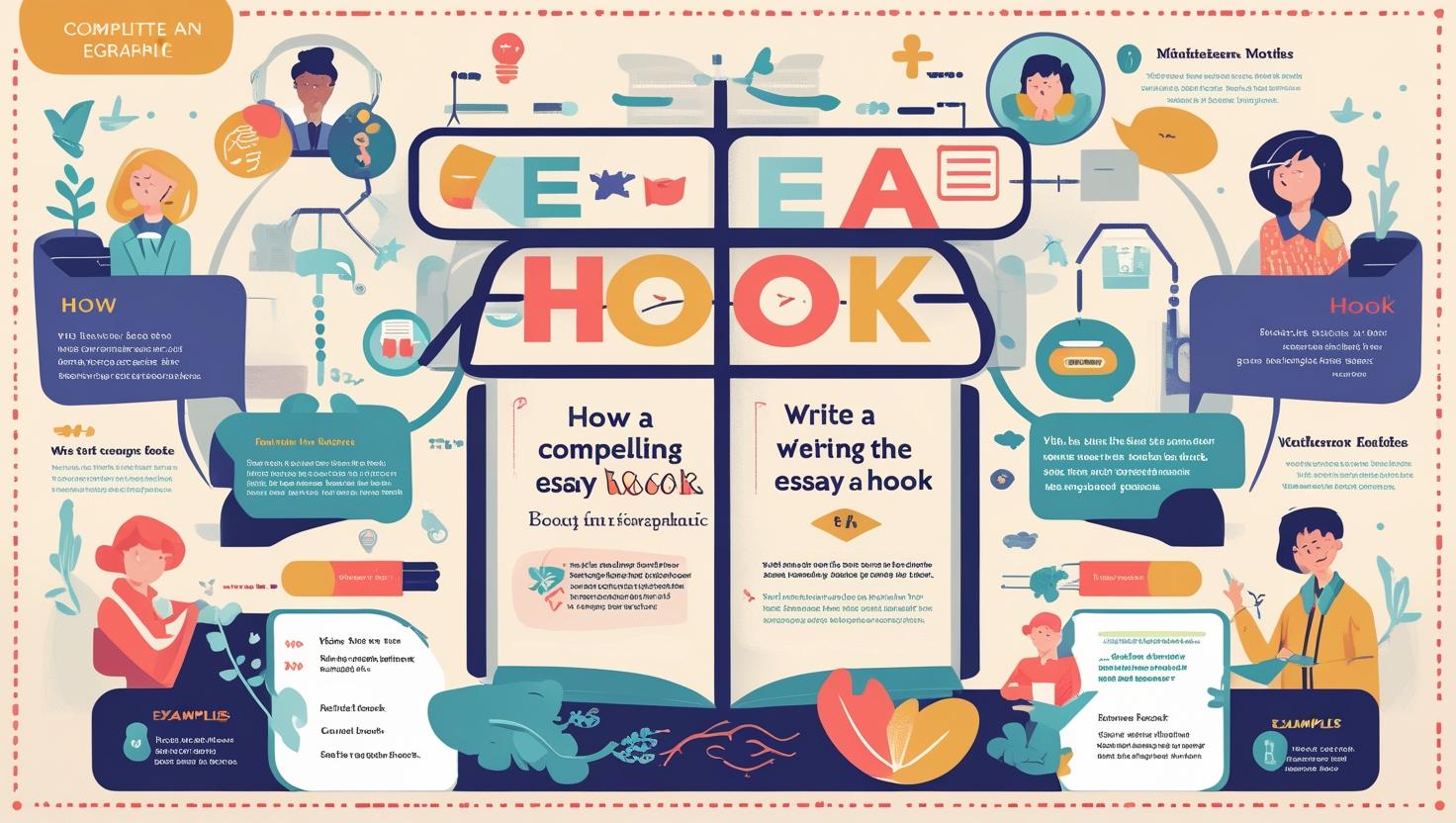
How to Write a Hook for an Opinion Essay?
It can be overwhelming to come to learn how to write a hook for an opinion essay, particularly for new writers. However, even professional ones also face the problem. The key is to focus on something that connects with the personal life of an individual.
Additionally, it should not be confusing but rather simple and easy to understand, which encourages the reader to engage with forthcoming content.
Start with a Strong Statement
A strong opinion grabs attention and sets the stage for your argument.
- “Everyone should be required to vote in national elections.”
- “School should start later to help students get enough sleep.”
- “Plastic water bottles should be banned everywhere.”
Ask a Direct Question
Questions work well because they invite the reader to think or respond.
- Is it fair to grade students only through exams?
- Should kids be allowed to use phones in school?
- Can money really buy happiness?
- Use a personal thought or belief.
Tips:
- While being friendly, maintain a respective behavior.
- Avoid vogue or neutral opening.
- Make sure the hook is relevant to the article, blog, or information.
Once you come up with a good hook, focus on making the entire introduction related to the hook. It should surround the hook. The hook must not mislead. Instead, it should support the upcoming argument, making the reader want to complete the reading and find out the answer to the hook. The start of the essay is what matters the most. A good start always encourages the readers to read.
Hook vs. Lead In
What creates the most difficulty in learning how to write a hook for an essay is to differentiate between a hook and a lead-in. Though both have great importance, they serve different purposes.
Knowing which one to use at what moment helps form an effective essay. The major difference is that a hook captures attention and forms curiosity, while a lead-in acts as a bridge to connect the hook with the rest of the text or topic.
Here’s How It Works:
Take an example of a question as a hook, such as “Are successful people actually happy?”. That is a hook that forms wonder among the reader. However, a lead-in explains the motive or reason behind using that particular hook for the essay.
The Lead-in Should:
- Seamlessly shift the reader from the hook to the rest of the context.
- Form clarity.
- Explain what the topic is about.
Imagine a funnel: the hook pulls people in. After the lead-in guides them to the topic, the article gives the main message.
Why It Matters
Lead-in plays an extremely important role in any essay. It joins the hook to the main idea of the topic, making a seamless transition. Otherwise, the essay lacks continuity. A lot of confusion occurs in the mind of the reader, and he might also lose track of the central idea without a lead-in.
Using hook and lead in the right way makes the essay much better and clearer. It’s like these help generate interest in the readers to read the forthcoming text, but he won’t have to put pressure on his mind. Once you understand the assignment, it will be a game-changer for your writing skills.
Tips for Writing an Effective Hook
If you learn and master the skill of how to write a hook for an essay, you will be able to write essays on any topic or any kind effortlessly. There are only a few things that should be your focus, which can be further explained in the following words.
Tips:
- Keep it brief: A hook should not be more than two lines. It is better to keep it short and concise. Usually, one line is preferred. It is because you should not open up the entire topic in order to maintain the wonder.
- Continuity in tone: It is very important to form a hook that is relevant not only to the information but also complements or matches the tone of the essay.
- Use hook smartly.
- Ask a question.
- Discusses a unique fact.
- Include a meaningful quote.
Do not make them wait too long: Avoid stretching the hook. Get to the point quickly so the readers understand what the text is really about and stay interested. Otherwise, they will soon be frustrated.
In addition to those, once you are done with the hook, try reading it yourself. Be loud so that you can test or identify whether it actually sounds good and interesting or not. It is because sometimes what you have written might sound different from a reader’s perspective. The hook is the first impression of the essay; it must be good.
How Oreate AI Can Assist with Your Hook and Even Essay Writing?
Even after working hard, learning how to write a hook for an essay can be a struggle. Students with a hectic schedule face difficulty in it. Nevertheless, we are living in a modern world supported by smart and advanced technologies. One such innovative tool that has caught the eye is Oreate AI Essay Writer.
It is an AI-based smart tool that provides assistance in forming an enhanced essay. The best part is that it even provides you with a very good hook. The hook provided by the Oreate AI Essay Writer is relevant to the content, concise, and simple to understand.
How It Works
1. Easy Prompt Understanding:
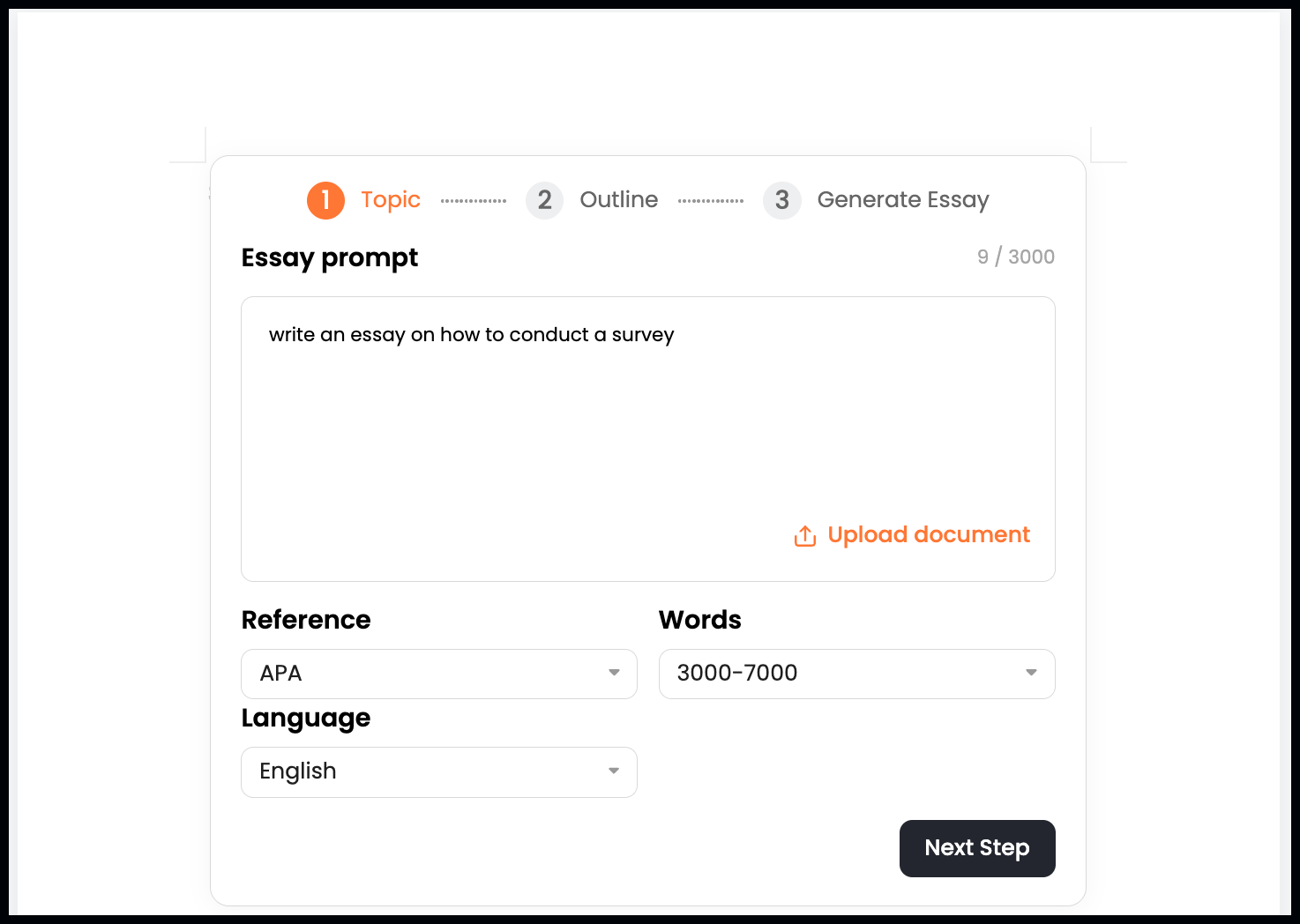
Instead of requiring users to learn specific commands or formatting, Oreate AI allows them to write prompts or upload an instruction in PDF form or a Doc and the tool will translate it into clear, actionable instructions for the AI system.
2. Smart Outline Adjustments:
The tool gives ease for making adjustments based on tone, difficulty level, and format. It lets you pick whether the starting should be bold or formal.
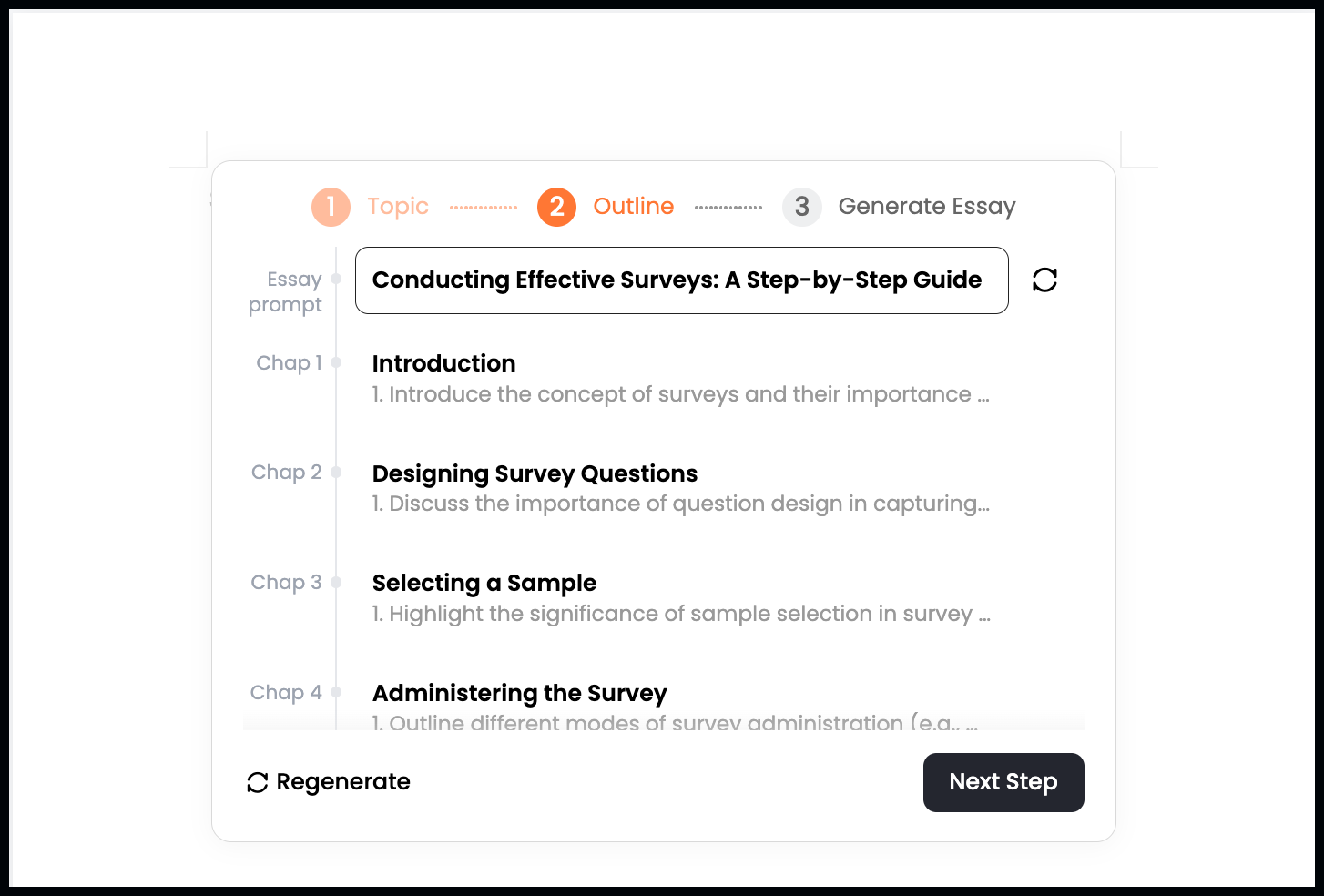
3. Context Awareness:
The standout feature of Oreate AI is that it does not give any random suggestions. It deeply analyzes the topic and provides hooks that best suit your topic. Hence, it forms continuity and relevance, which assist in a high-quality essay.
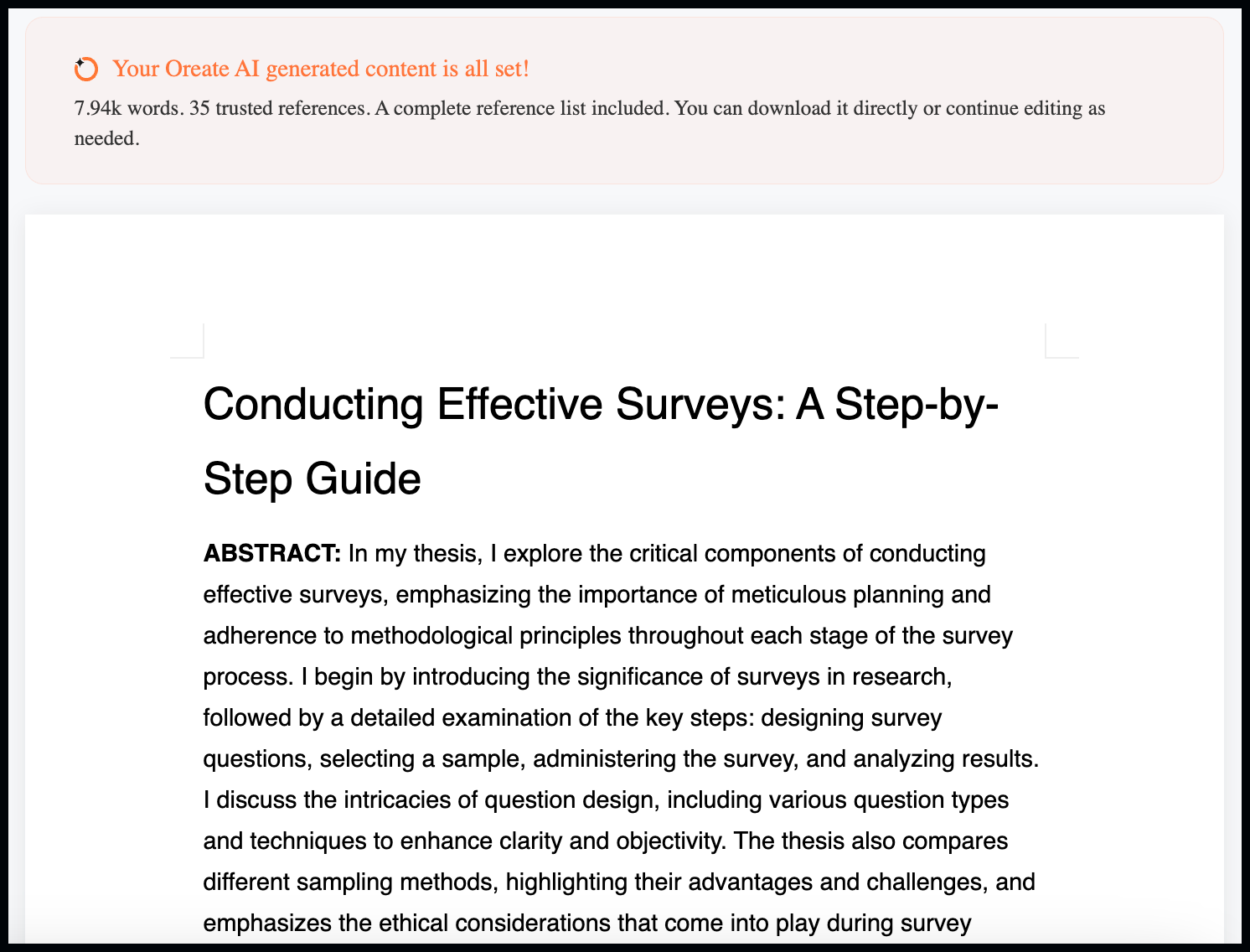
4. Plagiarism Checker:
Plagiarism can harm the quality and downgrade the essay. However, that won’t be a problem with Oreate AI. It maintains originality and delivers plagiarism-free results.
How to write a hook for an analytical essay or a normal essay might seem tough at first; however, Oreate AI has facilitated the process. It provides very great assistance in writing an engaging essay with catchy hooks. Therefore, with Oreate, enjoy a speedy and effective result.
Conclusion
The first impression is the last. That’s why hooks are considered very important for any type of essay. Learning how to write a hook for an essay has become a crucial task. It creates curiosity among the readers, making them want to go through the entire text. Use the tips shared above to craft better openings. Try different styles and experiment.
If you face any issue, you know where to go: Oreate AI. It makes the procedure a lot faster and more efficient. Your first sentence matters, so give it the attention it deserves. With practice and smart tools, you can hook your reader from the very first line.
